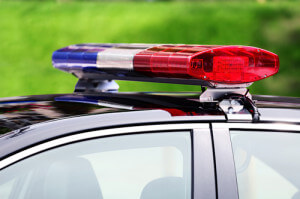New Year’s Eve brings out the celebration, champagne, and the DUI checkpoints in California. If you want to avoid a DUI arrest, it will be best to plan ahead and designate a sober driver. However, even with the best-laid plans, and as we saw recently in California with the overly caffeinated driver being arrested for DUI, a very sober driver can be arrested for driving under the influence. [1,2] And as we have seen first hand at 1.800.NoCuffs, dolphins do get caught in the tuna net.
On the subject of DUI arrests, 1.800.NoCuffs Founding Attorney Darren Kavinoky says, “A DUI charge can potentially impact anyone who has taken anything that impacts them from the neck up, whether prescribed or not, legal or illegal.” Kavinoky adds, “The only question is whether the person who consumed the substance is able to drive with the caution characteristic of a sober person, under similar circumstances. An excessive amount of caffeine is a ridiculous example, but not shocking, especially if someone is hypersensitive to the impact of caffeine on their system.”
DUI Checkpoints New Year’s Eve 2017 in California
Current news articles about DUI checkpoints over the New Year’s Eve holiday (this article may be updated as news releases occur):
- DUI Checkpoint in Santa Maria – Public News – Santa Barbara Edhat https://www.edhat.com/site/tidbit.cfm?nid=179351
- Police to hold DUI checkpoint Friday in Vallejo http://www.timesheraldonline.com/general-news/20161228/police-to-hold-dui-checkpoint-friday-in-vallejo
- Richmond police to conduct DUI checkpoint Friday
- New Year’s DUI cops plan to be out in force in Sonoma County http://www.petaluma360.com/news/6484834-181/new-years-dui-cops-plan
There are general resources that try to provide current up to date information about locations of DUI Checkpoints in California. 1.800.NoCuffs has no affiliation whatsoever to these sites.
http://www.nixle.com/
http://patch.com/
https://www.facebook.com/California.DUI.Checkpoints
http://www.duiblock.com/dui_checkpoint_locations/california/
California DUI Arrests
Looking for information on what to do if you arrested for a DUI? Read more about California DUI law here.
1.800.NoCuffs experienced DUI lawyer Michael Meehan shares his DUI advise here about the right to remain silent.
Are DUI Checkpoints Legal?
While there are currently twelve states that do not conduct sobriety checkpoints because their state laws don’t allow for them, California does legally have the authority to conduct checkpoints with the goal of eradicating drunk driving. “The U.S. Supreme Court ruled in 1990 that states had a compelling interest in eradicating drunk driving, and that public safety concerns outweighed any concerns about ‘intrusion’ into drivers’ privacy. The challengers in the case had claimed that these checkpoints were unreasonable searches under the 4th Amendment, but the Court found them reasonable under the circumstances.” [3]
SOURCES
1. Aparminder DEO and John Torres, M.D. December 29, 2016. wrcbtv.com. Retrieved via http://www.wrcbtv.com/story/34148057/4-things-to-know-about-caffeine-the-surprising-substance-behind-a-california-mans-dui.
2. Staff. Fox News.com.
3. Retrieved on December 2, 2016 via http://dui.findlaw.com/dui-arrests/dui-checkpoints.html.
Connect with 1.800.NoCuffs on social media at:
http://www.twitter.com/1800NoCuffs
http://www.facebook.com/NoCuffs
http://www.instagram.com/1800NoCuffs
For more information on 1.800.NoCuffs founding attorney Darren Kavinoky, please visit:
https://www.darrenkavinoky.com
http://www.twitter.com/DarrenKavinoky
http://www.facebook.com/DarrenKavinokyFanPage



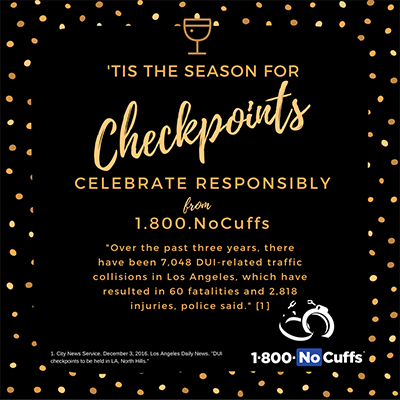
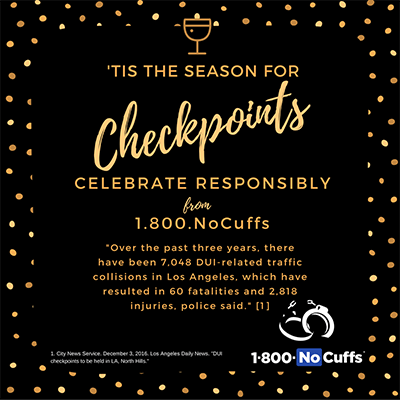
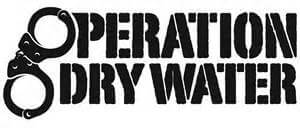
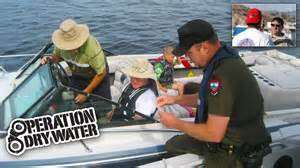 Operation Dry Water launched in 2009 by the
Operation Dry Water launched in 2009 by the 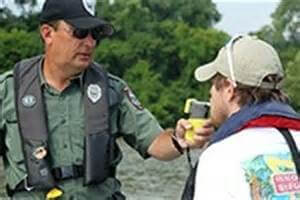 all clear: it is illegal to Boat Under the Influence. The
all clear: it is illegal to Boat Under the Influence. The 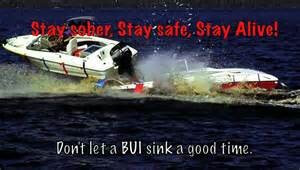 DUI and BUI cases are similar in prosecution. Additionally, while the penalties vary, it is only a slight variation. Under the BUI laws, you can still face fines, possible jail time and alcohol education classes. The one distinction is in the length of time priors can be used to enhance your sentence. Instead of the priorability time being ten years, as in DUI cases, priors only enhance a BUI when the DUI or BUI was committed within the last seven years prior to the offense.
DUI and BUI cases are similar in prosecution. Additionally, while the penalties vary, it is only a slight variation. Under the BUI laws, you can still face fines, possible jail time and alcohol education classes. The one distinction is in the length of time priors can be used to enhance your sentence. Instead of the priorability time being ten years, as in DUI cases, priors only enhance a BUI when the DUI or BUI was committed within the last seven years prior to the offense. There are many confusing variables involved in this type of case. Even a seasoned law enforcement officer may mistake light drinking for violation of boating under the influence laws (BUI). Your case may have some of these conditions, or any of the many others that lead to unwarranted BUI arrests. You could find yourself in a position of too much fun in the sun or wrongfully facing BUI charges. If so, you should consult with a
There are many confusing variables involved in this type of case. Even a seasoned law enforcement officer may mistake light drinking for violation of boating under the influence laws (BUI). Your case may have some of these conditions, or any of the many others that lead to unwarranted BUI arrests. You could find yourself in a position of too much fun in the sun or wrongfully facing BUI charges. If so, you should consult with a 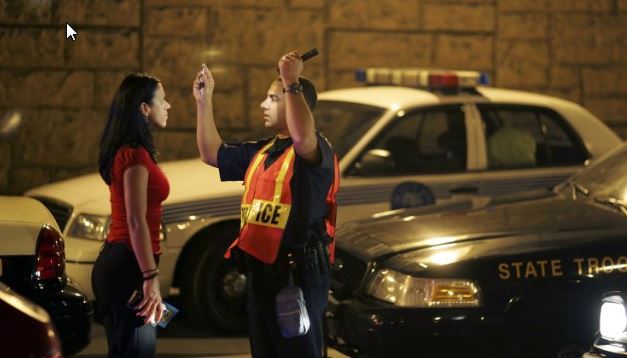
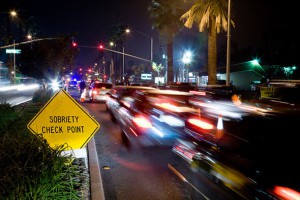 We are approaching summer and with the change in seasons to warmer weather, local law enforcement steps up DUI enforcement. This is especially true with checkpoints across Southern California.
We are approaching summer and with the change in seasons to warmer weather, local law enforcement steps up DUI enforcement. This is especially true with checkpoints across Southern California.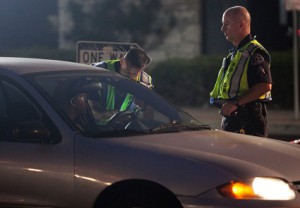 The first thing you should do in this situation is open your window slightly and wait for the law enforcement agent to ask you any questions. As with any routine stop, you are required to provide identifying information such as your name, address, driver’s license and registration. As a general rule, it’s good to have these things organized in advance.
The first thing you should do in this situation is open your window slightly and wait for the law enforcement agent to ask you any questions. As with any routine stop, you are required to provide identifying information such as your name, address, driver’s license and registration. As a general rule, it’s good to have these things organized in advance.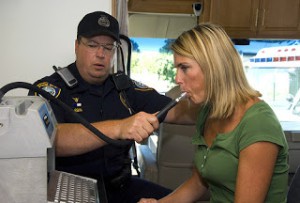 Many agencies use a portable breath test to determine the drivers’ blood alcohol content (BAC) levels. This is called a Preliminary Alcohol Screening Test (PAS). Even though it is a chemical test, it is legally considered to be a Field Sobriety Test. If you are over 21 and are not on probation for a previous DUI, this test is optional. In fact, before the officer administers a PAS test, they must read an admonition to you stating that the test is not mandatory. Because the technology shortcomings of the PAS machine make is susceptible to giving readings that are inaccurate and overly state true alcohol levels, if you’ve had any alcohol at all, especially recent consumption of alcohol, it is best NOT to take this test.
Many agencies use a portable breath test to determine the drivers’ blood alcohol content (BAC) levels. This is called a Preliminary Alcohol Screening Test (PAS). Even though it is a chemical test, it is legally considered to be a Field Sobriety Test. If you are over 21 and are not on probation for a previous DUI, this test is optional. In fact, before the officer administers a PAS test, they must read an admonition to you stating that the test is not mandatory. Because the technology shortcomings of the PAS machine make is susceptible to giving readings that are inaccurate and overly state true alcohol levels, if you’ve had any alcohol at all, especially recent consumption of alcohol, it is best NOT to take this test.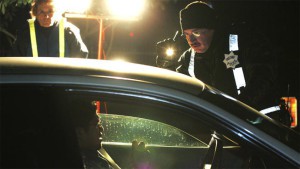 When conducting sobriety checkpoints, police must follow strict guidelines outlined by the U.S. Supreme Court in the landmark case Ingersoll vs. Palmer. If police do not follow the criteria from Ingersoll, the DUI roadblock isn’t lawful. Additionally, any evidence gathered during a drunk driving arrest is possibly not admissible in court.
When conducting sobriety checkpoints, police must follow strict guidelines outlined by the U.S. Supreme Court in the landmark case Ingersoll vs. Palmer. If police do not follow the criteria from Ingersoll, the DUI roadblock isn’t lawful. Additionally, any evidence gathered during a drunk driving arrest is possibly not admissible in court.